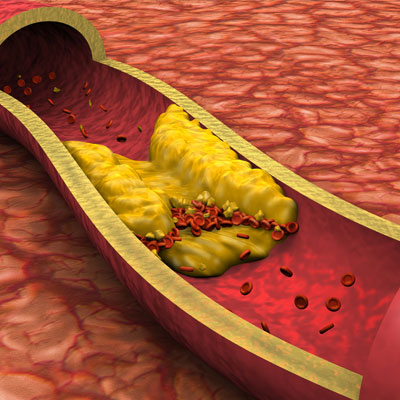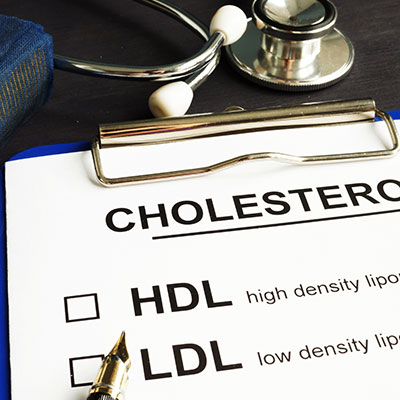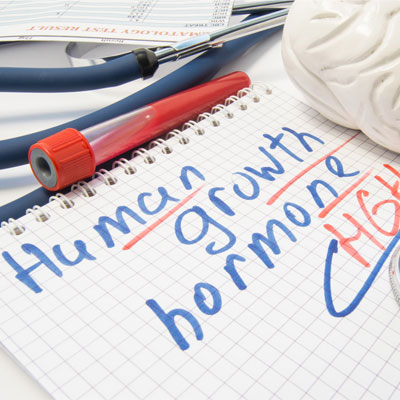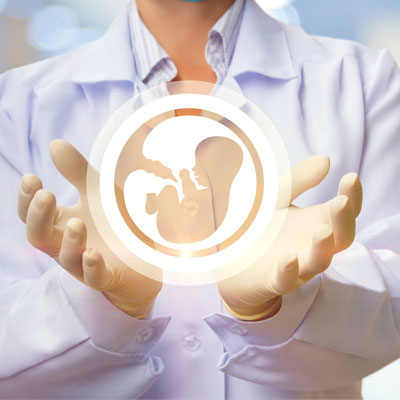Contents
- What Is Cholesterol?
- What Is the Normal Cholesterol Level?
- What Is the Difference Between “Good” and “Bad” Cholesterol?
- How Does Human Growth Hormone Affect Cholesterol Levels?
- How Low HGH Affects Cholesterol
- Can HGH Therapy Lower Cholesterol Levels?
- Effects of HGH Injections on Cholesterol
- What Does the Research Say About HGH and Cholesterol Levels?
- Conclusion
Current research suggests that there is a link between human growth hormone (HGH) and cholesterol.
Human growth hormone, or HGH, plays a critical role in maintaining health and vitality. HGH is produced by the pituitary gland. As children, it is HGH that is primarily responsible for all of the processes that allow a child to grow into a healthy adult. Even as an adult, HGH continues to play a vital role. However, HGH levels drop as we age. This age-related HGH loss can lead to a number of health problems, one of which can be an increase in “bad” (LDL) cholesterol. High levels of LDL cholesterol raise your risk for heart disease and stroke.
What Is Cholesterol?
Cholesterol is a kind of fat in your blood. There are two types of cholesterol – LDL cholesterol, which is bad, and HDL, which is good. If you have too much of the bad kind, it can build up on the walls of your blood vessels and make them narrow. This is what is meant when we say someone has “high cholesterol.”
What Is the Normal Cholesterol Level?
Total cholesterol levels less than 200 milligrams per deciliter (mg/dL) are considered desirable for adults. A reading between 200 and 239 mg/dL is considered borderline high, and a reading of 240 mg/dL and above is considered high. LDL cholesterol levels should be less than 100 mg/dL.
What Is the Difference Between “Good” and “Bad” Cholesterol?
Cholesterol is a waxy substance that builds in the arteries. Cholesterol is something that is naturally produced by the body, and despite the generic use of the word cholesterol as it relates to health problems like stroke and heart disease, it is not all bad for you. In fact, there is a “good” and a “bad” cholesterol.
There are actually two distinct types of cholesterol – high-density lipoprotein (HDL) and low-density lipoprotein (LDL). Generally speaking, HDL is considered “good” cholesterol, while LDL is considered “bad.” This is because HDL carries cholesterol to your liver, where it can be removed from your bloodstream before it builds up in your arteries.
LDL, on the other hand, takes cholesterol directly to your arteries. This is the kind of cholesterol that leads to “atherosclerosis,” or hardening of the arteries. This plaque buildup restricts proper blood flow and can lead to cardiovascular incidents such as heart attack and stroke. It can also increase the risk of other conditions such as diabetes, high blood pressure, and metabolic syndrome.
A heart-healthy diet is one designed to restrict your intake of “bad” (LDL) cholesterol and increase your intake of “good” cholesterol.
How Does Human Growth Hormone Affect Cholesterol Levels?
Growth hormone deficiency (GHD) slows down metabolic function leading to increased fat storage. This can lead to obesity and related problems such as high LDL cholesterol. There are two types of cholesterol: LDL cholesterol, which is considered the “bad,” and HDL, which is the “good” cholesterol. Too much of the bad kind, or not enough of the good kind, increases the risk that cholesterol – a waxy-like substance — will slowly build up in the inner walls of the arteries that feed the heart and brain. This increases the risk of cardiovascular disease. Because HGH affects your cholesterol level, men and women with age-related GHD are at greater risk of cardiovascular disease.
How Low HGH Affects Cholesterol
People with low HGH tend to have high “bad” cholesterol levels. It is hard to say with any certainty that one directly causes the other. However, we do know that as we age, our body’s ability to produce growth hormone declines. Studies have shown that older men, in particular, who are suffering from age-related growth hormone deficiency are also more likely to be overweight, have heart problems, and have high cholesterol. These same studies indicate that HGH replacement can boost metabolism, increase your ability to burn fat, and lower your bad (LDL) cholesterol levels.
Can HGH Therapy Lower Cholesterol Levels?
Studies on the effects of growth hormone on cholesterol levels have proven exceedingly optimistic. Individuals treated with growth hormone therapy experience a decrease in total and LDL cholesterol levels. HDL cholesterol levels did not demonstrate a significant change from HGH therapy. HGH even managed to decrease LDL cholesterol levels in patients receiving statin therapy.
Extended use of growth hormone therapy may provide a subtle change in HDL cholesterol and triglyceride levels in some patients. The most important benefit here is that HGH therapy decreases LDL cholesterol without removing what is needed by the body for hormone production.
Adults with prior cardiovascular history are at no increased risk of further cardiovascular events following growth hormone therapy. If anything, increasing HGH levels in the body helps to improve cardiovascular capacity and output.
It is essential to remember that growth hormone therapy is a doctor-prescribed and supervised treatment. The only time to use HGH injections is when blood analysis turns up adult GHD. In those instances, treatment is safe and effective.
Effects of HGH Injections on Cholesterol
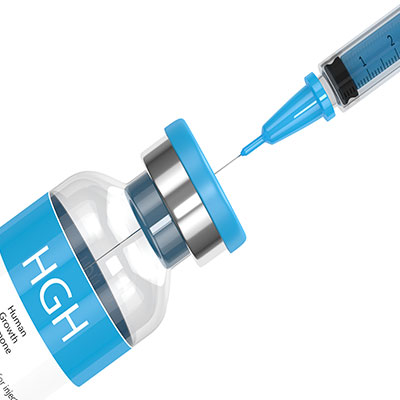
HGH injections are prescribed to treat children and adults with growth hormone deficiency, or GHD. Because of its known ability to help build muscle mass, HGH injections are also prescribed for the “muscle wasting” that occurs in HIV/AIDS patients and those suffering from other degenerative muscle diseases.
Studies have found that when properly prescribed for patients with adult-onset or age-related GHD, one of the many benefits of HGH injections could be a reduction in “bad” (LDL) cholesterol levels.
What Does the Research Say About HGH and Cholesterol Levels?
Current clinical research seems to suggest that growth hormone replacement therapy can help to lower your levels of LDL (bad) cholesterol.
A study published in the medical journal Trusted sourceHDL-cholesterol reductions associated with adult GHRWiley Online LibraryGo to sourceClinical Endocrinology found that when given HGH injections for six months, treatment with HGH can reduce serum cholesterol concentrations.
A Trusted sourceThe effect of 24 months recombinant GH on LDL cholesterolPubmedGo to source24-month clinical trial on the effects of HGH on cholesterol concluded that “significant reductions were observed in total cholesterol.”
A study published in Trusted sourceGrowth hormone and lipidsPubmedGo to sourceHormone Research in Pediatrics verified the lipolytic properties (fat burning) and cholesterol-lowering effect of growth hormone administration.
This is just a small sample of the volumes of recent research that indicates the cholesterol-lowering ability of HGH.
A 2018 study published in the journal Trusted sourceEffect of recombinant HGH therapy on bloodNature PortfolioGo to sourcePediatric Research found that in children already diagnosed with GHD, growth hormone therapy significantly reduced total cholesterol triglyceride and LDL cholesterol levels in the blood.
A 2005 study published in Trusted sourceGrowth Hormone and Cardiovascular Risk FactorsJournal of Clinical Endocrinology & MetabolismGo to sourceThe Journal of Clinical Endocrinology & Metabolism concluded that HGH therapy could lower the risk of cardiovascular disease, particularly “vascular atherosclerosis” resulting from insulin resistance and high LDL cholesterol.
Conclusion
There is significant medical research that suggests that growth hormone therapy can lower your levels of “bad” cholesterol and lower your risk of cardiovascular disease.
Now that you know a bit more about the links between HGH and high cholesterol, why not contact us today? We would be happy to answer any questions or concerns you may have about cholesterol, heart disease, and growth hormone replacement therapy.
FAQ
What Causes High Cholesterol?
Some people may have a natural or genetic propensity to develop high cholesterol. Beyond that, there are risk factors that can increase your chances of high cholesterol. A poor diet, obesity, and a sedentary lifestyle all contribute to high LDL cholesterol and low HDL cholesterol – a very unhealthy combination. Other risk factors include diabetes, smoking, age, and low growth hormone or testosterone levels.
What is the Link Between Human Growth Hormone and Cholesterol?
Lower than normal levels of human growth hormone has been linked to high levels of “bad” cholesterol. In addition to raising levels of fat stored in the body and lowering levels of lean muscle mass, low HGH levels also lead to high total cholesterol, heart disease, low bone density, altered psychological function, and a greater risk of dying overall.
Complications of High Cholesterol
When you have too much "bad" (LDL) cholesterol in your blood, it can make it harder for your blood to move through your body. This can lead to high blood pressure and an increased risk of heart disease or stroke.
How to Prevent High Cholesterol?
Adapting a "heart-healthy lifestyle" can help to prevent high cholesterol. That means you should:
- Eat a low-salt diet that emphasizes fruits, vegetables, and whole grains
- Limit the number of animal fats and use good fats in moderation
- Lose extra pounds and maintain a healthy weight
- Quit smoking
- Exercise on most days of the week for at least 30 minutes
- Drink alcohol in moderation, if at all
- Manage stress
- Serena Tonstad, MD, PhD, MPH, Elisabeth Sundt, Leiv Ose, MD, PhD, Tor-Arne Hagve, Prof. Jean-Charles Fruchart, Staffan Edén, PhD, Jean-Marie Bard, PhD
- Mats Rudling, MD, PhD, Professor, Dr. Hans Olivecrona, MD, PhD, Gunnar Norstedt, MD, PhD, Eva Reihnér, Bo Angelin, MD, PhD, Jan-Åke Gustafsson, MD, PhD
- Heather M. Ross, Medically reviewed by Richard N. Fogoros, MD
- Stephanie Watson, Medically reviewed by Judith Marcin, M.D.
The effect of growth hormone on low-density lipoprotein cholesterol and lipoprotein(a) levels in familial hypercholesterolemia
Importance of growth hormone for the induction of hepatic low density lipoprotein receptor
Human Growth Hormone and Your Cholesterol
The Effects of High Cholesterol on the Body

